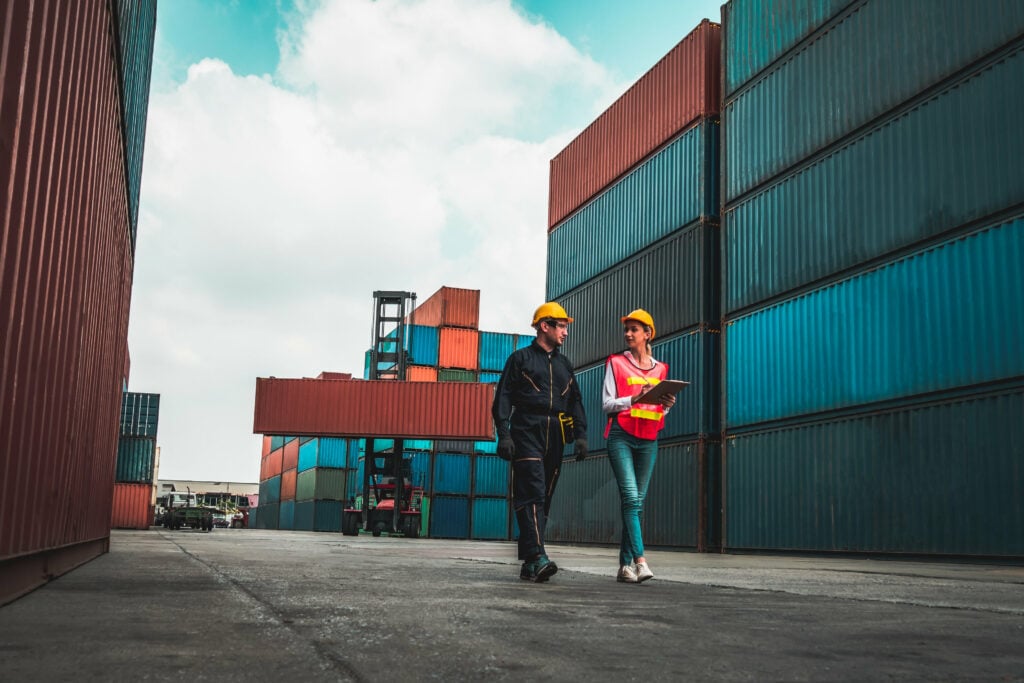What Social Audits Reveal About Your Supply Chain Sites
Stakeholders expect proof, not promises. Social audits show how a business treats people, manages risks, and delivers on sustainability goals. They can uncover what’s really happening in your own operations and at supply chain sites, providing credible evidence of responsible business practices.
So, what is a social audit? Understanding how social audits work and what they reveal helps companies take focused action to improve working conditions and strengthen compliance across global supply chains.
What do social audits assess and why do they matter?
Social audits, also called social compliance audits, are an assessment of a worksite’s social and ethical practices and performance. This includes areas such as employment practices, workers’ conditions and a company’s impact on the communities where they operate.
This involves evaluating how well a business or individual facility adheres to ethical standards – such as those outlined in:
- Relevant labour and ethical laws
- Related international standards and best practice, such as those from the International Labour Organization
- A business’s own stated sustainability goals
Social audits aim to identify inconsistencies between these standards and a business’s actual practices.
Companies use social audits to look at both their operations and their supply chains. They use social audits to understand, manage, track and report to their stakeholders on the social risks and conditions in their supply chains. This is an increasingly important requirement in many laws, investors’ ESG asks and demands for more responsible business.
Social audits are also a way of validating self-reported information and desktop (or remote) sustainability risk assessments, so businesses can take action to make improvements and address any actual issues or negative impacts.

How are social audits conducted?
Social audits involve trained auditors reviewing a business or worksite’s policies, processes, practices and conditions. Ideally, these auditors are from an independent assessment company.
The process typically includes an auditor gathering information from various sources, including their own observations, employees’ feedback and business documents to examine a business’s compliance with relevant laws and regulations.
The best social audits involve an auditor visiting a business location (such as a factory, warehouse or farm) in person, to directly observe how the site operates, the people working there and how the site manages social standards.
The most credible audits use established, carefully developed methodologies – such as Sedex’s SMETA audit, which is aligned with the Ethical Trading Initiative’s Base Code of labour practices and other international standards.
The areas a social audit usually looks at include:
- Compliance with applicable laws, such as health and safety regulations.
- Employment practices and conditions.
- Who the workers are and whether more vulnerable workers (such as women or migrant workers) are protected from discrimination.
- Processes to prevent bribery and corruption.
- Documentation and management systems to uphold the laws and ethical standards.
The four key benefits of social audits
1. Increase supply chain transparency
Companies gain deeper insight into conditions, people, practices and processes through site-specific social audits such as SMETA.
Validate self-reported information from suppliers and worksites with an in-person assessment, see how a facility operationalises its ethical and labour policies, and gather valuable data for monitoring and reporting.

2. Drive ethical practices and improved ESG performance
Social audits enable businesses to more precisely identify social risks and actual issues across their own operations and supply chain worksites.
Focus resources on targeted actions to improve risk management and resolve issues found at an audit. Some social auditing frameworks also include follow-up assessments to verify this resolution and track improvements over time, especially when social audit results are integrated into a sustainability data platform.
Not only does this drive ethical practices, it also provides a valuable source of data for a business to demonstrate their progress and commitment to social accountability. For example, our data shows that collectively Sedex customers resolved over 185,000 issues in 2023 through SMETA audits!
3. Meet legislative requirements
Social audits help organisations perform effective supply chain due diligence to comply with relevant laws such as the Corporate Sustainability Due Diligence Directive (CSDDD) and Canada’s modern slavery act.
Carrying out supply chain sustainability assessments, including social audits, and evidencing these activities helps a business protect itself from penalties under corporate sustainability laws. The data from these activities also helps to combat greenwashing concerns by providing evidence to back up a company’s sustainability claims.
4. Enhance business reputation
Managing ESG and supply chain sustainability concerns strengthens a business’s reputation with customers and other stakeholder engagement.
Consumers increasingly expect companies to help them make more sustainable choices and financial analysis shows that ESG factors can support investment returns over time1. Meanwhile, companies that fail to act on major sustainability concerns may see their reputations damaged, even over issues deep in their supply chains.
With social audits, companies can show that they’re proactively addressing the social and ethical issues that risk affecting their business.
How to use social audits in supply chain due diligence
Social audits are an extremely valuable tool to use in wider sustainability programmes – such as supply chain due diligence, corporate social responsibility initiatives and responsible sourcing strategies.
As audits are a fixed assessment carried out at a particular point in time, they enable a business to both make initial improvements on issues identified and inform decision-making on other activities.
For example, in supply chain due diligence programmes a business might use the findings from a social audit to carry out a more focused, in-depth impact assessment on a specific area of concern such as fair wages.
Manage social risks with SMETA audits
Sedex’s SMETA social audit enables businesses to understand performance against agreed standards (including local laws) of labour, health and safety, business ethics and environmental performance at worksite-level.
SMETA is designed to work across all businesses, regardless of country, size or industry. This means SMETA audit reports create a comparable dataset across business and supply chain sites globally, with the data-driven Sedex Platform enabling companies to draw key insights, prioritise where they act on social sustainability risks. Our customers also save time with our Platform’s streamlined reporting capabilities, including enabling supply chain businesses to share one SMETA audit with multiple customers.
Social audits are a powerful tool for ensuring the long-term success of an organisation. By evidencing commitment to, and progress on, ethical practices, businesses can satisfy stakeholders’ supply chain ESG demands to support their long-term, sustainable success.
Ready to strengthen your supply chain due diligence?
Explore SMETA audits — the world’s most trusted social compliance methodology, trusted by 95,000 businesses worldwide.





